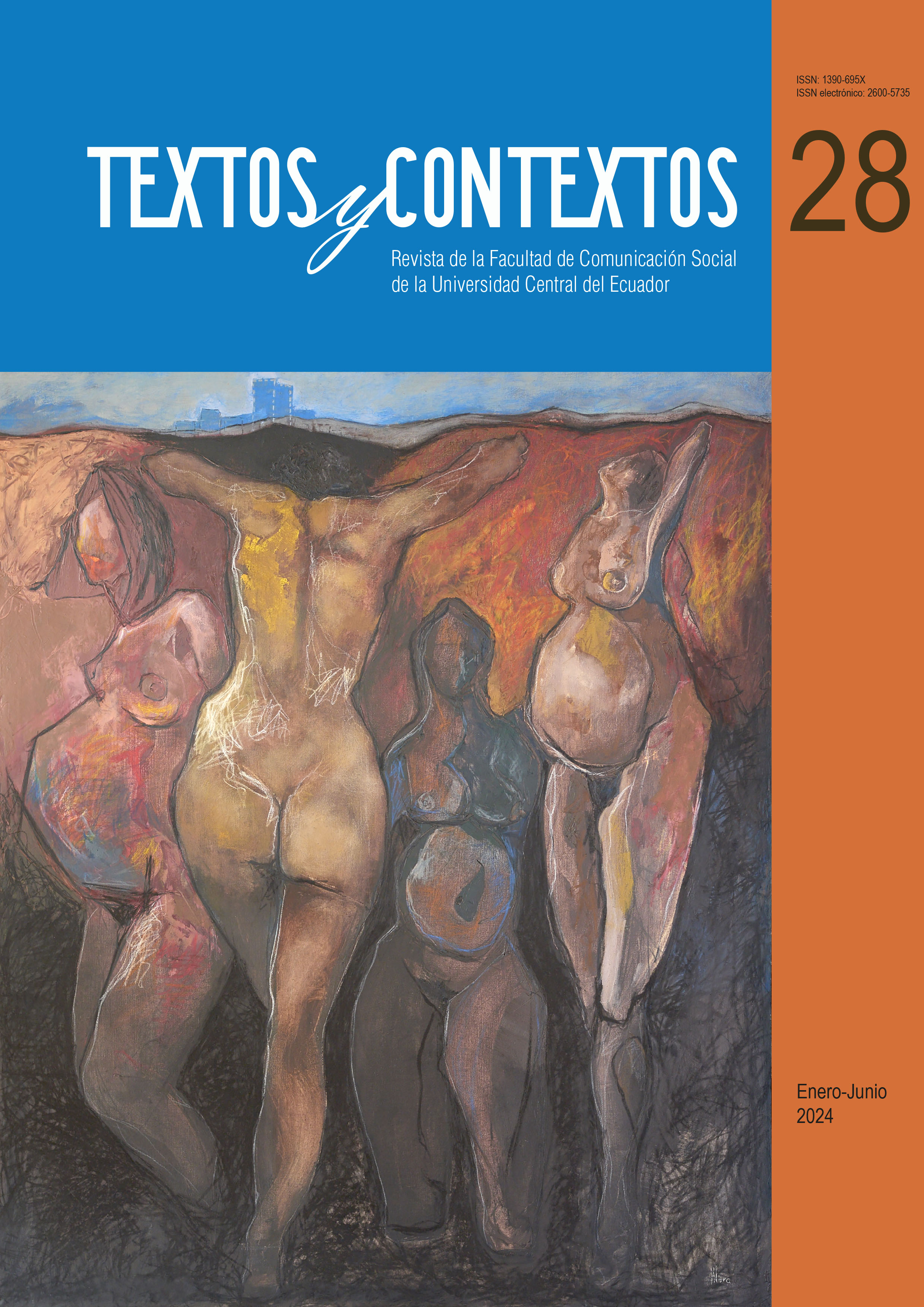Crítica a la modernidad capitalista a través del filosofar de Bolívar Echeverría
Main Article Content
Abstract
The article adheres to critical thinking regarding existing modernity,
therefore, it was necessary to turn to the perspective of Bolívar Echeverría, she
emphasizes the urgency and need to transform the existing order, and thus,
safeguard the world of life. On the other hand, it was decided to construct a
synthetic discourse, with the risk of incurring trifles, however, the article does not
lose the core of reflection as it insists on the relevance of contradicting the
discourse that endorses and celebrates the existing order, and thus, be able to
make room for alternatives. Now, critical and alternative thinking seeks the
transformation of order, hence it is necessary not to confuse it with performance,
which is satisfied only with disconcerting the current social order for a moment, and
then continuing immersed in routine. In this sense, performance is valid as a
means, but not as an end.
Downloads
Metrics
Article Details

This work is licensed under a Creative Commons Attribution-NonCommercial 4.0 International License.
References
Arizmendi, L. (2018). Bolívar Echeverría: la aventura de la Teoría Crítica al barroquismo.
Revista Internacional de Comunicación y Desarrollo, 8, 135-153
Campos, J. M. (2021). Valor de uso y naturaleza en la concepción de Bolívar Echeverría.
Religación, 6 (29), 1-14
Castro, B.C. (2023). Contrapunto de Estado desde Bolívar Echeverría. Araucaria, 25 (52),
-629
Cevallos, S. (2012). La crítica de Bolívar Echeverría del barroco y la modernidad
capitalista. Revista de ciencias sociales, 44, 119-124
Constante, A. (2007). La memoria perdida de las cosas (crítica a la modernidad). EN-
CLAVES del pensamiento, 1 (1), 91-120
Díaz de la Serna, I. y otros. (2009). Una mirada crítica sobre la modernidad. Entrevista
con Bolívar Echeverría. Norteamérica, 4 (1), 207-222
Echeverría, B. (1986). El discurso crítico de Marx. México: ERA
Echeverría, B. (1997). Las ilusiones de la modernidad. México: UNAM/El equilibrista
Echeverría, B. (1998). Valor de uso y utopía. México: Siglo XXI editores
Echeverría, B. (2000). La modernidad de lo barroco. México: Ediciones ERA
Echeverría, B. (2006). Vuelta de siglo. México: ERA
Echeverría, B. (2010). Modernidad y blanquitud. México: Ediciones ERA
Echeverría, B. (2010). Definición de la cultura. México: Fondo de Cultura Económica/
Editorial Ítaca
Gandler, S. (2015). La teoría crítica de Bolívar Echeverría. Una reinterpretación del
paradigma de la comunicación desde América Latina. Opción, 31 (76), 63-91
Gandler, S. (2021). Concepto de ethos histórico. Alcances y limitaciones: el problema de
la cosificación. Signos filosóficos, 23 (45), 152-178
García, M. A. (2012). Sobre el concepto de “cultura política” en Bolívar Echeverría. Iconos.
Revista de ciencias sociales, 43, 33-46
Mancha, E. (2022). La idea de revolución en el pensamiento de Bolívar Echeverría.
Revista de Investigación en Ciencias Jurídicas, 51, 1-33
Martínez, M. (2017). Modernidad capitalista y valor de uso en Bolívar Echeverría.
Economía y sociedad, 22 (51), 21-32
Peralta, Y. (2020). Bolívar Echeverría y el concepto de “abundancia”. Revista de ciencias
sociales, 42 (1), 94-104
Piñeiro, E. (2016). Radicalidad y crítica del buen vivir: una lectura desde Bolívar
Echeverría. Economía y desarrollo, 157 (2), 120-129
Rodríguez, A. (2018). Bartolomé de las Casas y su crítica de la modernidad. Analéctica, 4
(27), 1-5
Sagal, Y. (2016). En torno a la crisis capitalista de y desde la reproducción social. Crítica y
resistencias. Revista de conflictos sociales latinoamericanos. 2, 109-126
Torres, A. (2020). Bolívar Echeverría: el discurso crítico y la política de la forma




